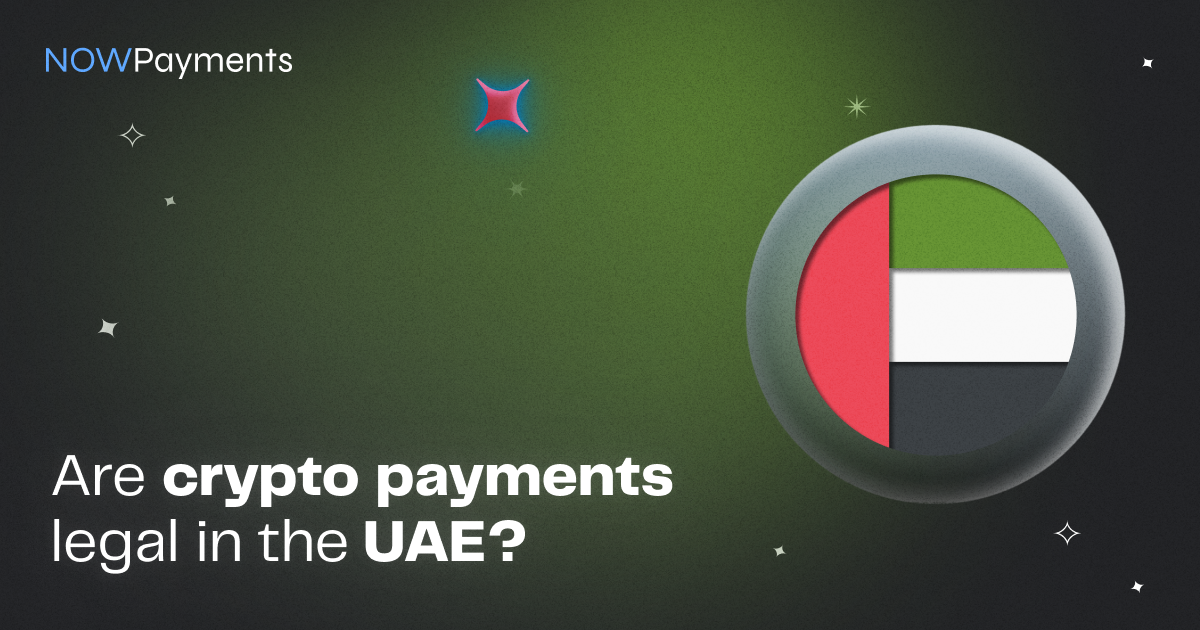The United Arab Emirates (UAE) has been actively advancing its blockchain and cryptocurrency technologies over the past decade. With the cryptocurrency market cap exceeding 1 trillion U.S. dollars, opportunities are abundant, especially in innovative cities like Abu Dhabi and Dubai, which are focused on creating a unique blockchain infrastructure.
Currently, there are no restrictions on crypto transactions across the UAE. Individual taxes do not apply to residents, and corporate tax rates vary based on total taxable income. Businesses in Dubai can now legally accept crypto payments and utilize various tools available through service providers like crypto.com, facilitating seamless transactions.
Can I Accept Crypto Payments in UAE?
Yes, citizens and residents of the UAE can easily send and accept crypto payments.
The Central Bank of the UAE (CBUAE) began regulating cryptocurrencies in 2017. According to this regulation, all transactions involving digital currencies must occur through licensed crypto exchanges and comply with anti-money laundering laws set by the CBUAE. While cryptocurrencies are not considered illegal, the CBUAE has yet to issue licenses or recognize them as legal currency. The crypto community anticipates more detailed regulations to be introduced in 2023.
Can I Accept Crypto Payments in UAE?
The Dubai Financial Services Authority (DFSA) created the Dubai Virtual Assets Regulatory Authority (VARA) as part of the Virtual Assets Law of 2022. This independent regulator oversees, governs, and issues licenses for digital currencies, NFTs, and other crypto assets in Dubai. One of its main goals is to attract investment and businesses that engage in virtual asset activities to operate within the Dubai International Financial Centre.
Additionally, the postal service of the United Arab Emirates became the first in the Middle East to issue nonfungible token (NFT) stamps celebrating the federation’s 50th anniversary. Furthermore, the Central Bank of the UAE (CBUAE) announced plans to test a national digital currency.
Currently, there are no restrictions on using cryptocurrency in the UAE, as these activities are regulated both implicitly and explicitly. Therefore, residents can buy, sell, and invest in cryptocurrencies freely. This means that individuals in various emirates, including Dubai, are allowed to own and invest in crypto assets.
Tax on Crypto Assets in the United Arab Emirates
The UAE is recognized for its favorable tax environment, as it only imposes corporate tax on oil companies and foreign banks, while individuals do not pay income tax. The corporate tax rates are 9% for taxable income exceeding 375,000 AED and 0% for income up to that threshold.
Since September 2021, certain free trade zones in Dubai and Abu Dhabi have implemented tax exemptions for crypto assets. These exemptions apply to all crypto activities, including trading crypto assets, staking, mining, and NFTs. As a result, whether you actively trade or casually use cryptocurrency, you will not incur taxes on any gains from crypto transactions.
How Can I Accept Crypto Payments in the UAE?
When starting to accept crypto payments for individual or business purposes, it’s important to use a reputable crypto payment processing service. NOWPayments offers a range of tools that help make crypto payments easy and convenient:
- Donation widgets. Permit you to paste your API key into the code snippet and insert the code into your website.
- Donation buttons. Codes that are simple to add to your email signature, blog, or website.
- Donation links. Anywhere online, including social media, links can be used to share these with people.
- Plugins. Payment gateways are ideal for accepting cryptocurrency payments in online stores because they integrate easily into popular content management systems (CMS) like WooCommerce and OpenCart.
- Cryptocurrency API. Provides instant payment notifications (IPN) and allows for the integration of cryptocurrency payment services into your website, platform, or mobile app.
- Invoices. The payment process can be streamlined with personalized invoices that your customers can pay in fewer steps.
- Point of sale (POS) terminal. Offer your customers a convenient way to use their cryptocurrencies in your physical, offline store. Benefit from additional tools like transaction management, quick payments, and simple invoicing.
A Step-by-Step Guide to Accept Crypto Payments
Create a NOWPayments account to begin accepting crypto payments.
- Visit the official NOWPayments website to register. Enter your email address and select a password for your account.
- Confirm your email address, log in, and open the NOWPayments dashboard.
- The next step is to enter the address of your cryptocurrency wallet in the Payment settings from the Settings menu. The cryptocurrency payments you receive will be sent to this address.
- To access plugins and API updates, the API key can also be generated in this tab.
- You can receive your first payment by creating a Payment link in the Payment tools. Choose the price, the method of payment, and whether or not a fixed rate payment and a customer-paid fee are used.
- The generated permalink can now be sent to your customer for payment.
Conclusion
The UAE has emerged as a leading crypto hub, providing businesses and individuals with a clear framework for crypto assets and favorable tax policies for using cryptocurrencies. The blend of crypto-friendly regulations, tax benefits, and a rapidly expanding digital asset market makes the UAE an ideal location for crypto companies to thrive.
Businesses that want to accept crypto payments can easily use solutions like NOWPayments to simplify the process, lower transaction fees, and attract new customers globally. As the crypto market continues to grow, the UAE is at the forefront of the blockchain strategy, offering a compliant, secure, and tax-advantaged environment for innovation and growth.
Now is the ideal time for businesses in the UAE to accept crypto payments and capitalize on the opportunities that cryptocurrency provides. With the legal status established and the region’s commitment to becoming a global leader in digital assets, the future of crypto in the UAE looks exceptionally promising.

